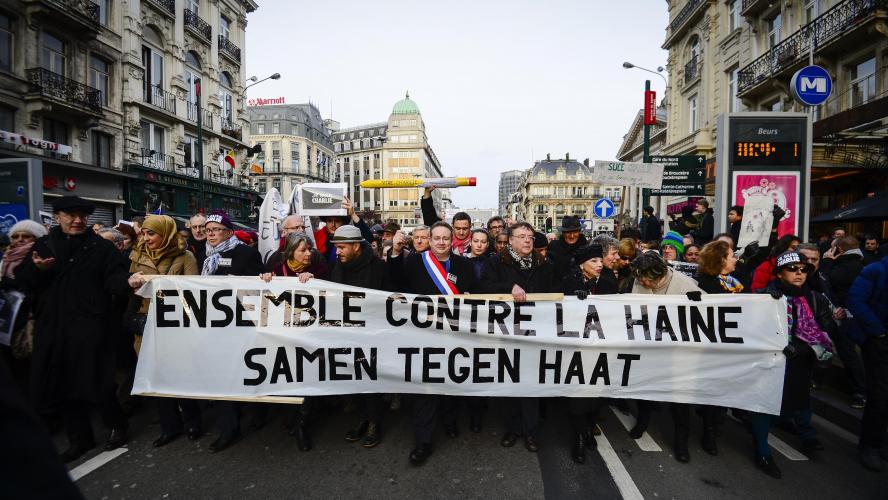Governments must do more to protect freedom of expression against religious intolerance, which continues to mount in the aftermath of the terror attack against French newspaper Charlie Hebdo, the head of Reporters Without Borders (RWB) and other press liberties advocates said Monday.
"The lessons of the attack on Charlie Hebdo have not been learned," RWB's secretary-general Christophe Deloire said in a press conference in Paris ahead of the fifth anniversary of the shooting against the satirical weekly, in which 12 people were killed in an attack claimed by a branch of Al-Qaeda.
The journal is known for its secularist and irreverent content and has a history of spurring controversy for its satirical and often polemic depictions of religious leaders, including one of the Islamic prophet Muhammad on one of the issues preceding the attack.
Deloire was speaking alongside Ahmed Shaheed and David Kaye, two United Nations special rapporteurs on press and religious liberties and freedom of opinion.
Shaheed said that, five years after Charlie Hebdo, there were "worrying signs that we may not be as committed to the defence of free speech as we claimed in the aftermath of the attacks."
"We remind heads of state and government —including those who marched against terrorism and for free speech through the streets of Paris on 11 January 2015— of the importance not only protecting journalists and cartoonists but also protecting their right to criticise systems of thought," they said in a statement.
After the attack, which spurred a movement of solidarity named "Je suis Charlie," and saw leaders across the globe —including several from countries with poor civil and press liberties records, or those known to have acted to curb press freedom in the past— join in a march commemorating the victims of the attack.
The speakers noted that while, in the aftermath of the attack, eight countries had repealed their blasphemy laws, they still exist in 69 countries and six governments continue to punish it with the death penalty: Mauritius, Brunei, Pakistan, Iran and Afghanistan.
The speakers also warned of the consequences of failing to address more insidious obstacles to freedom of expression, such as online pressure campaigns or harassment.
Deloire said that such "shackles on press freedoms" online could heighten the risk of self-censorship, as "states and media platforms cede," and as press liberties "live on formally [in laws] but are no longer practised."
In 2018, Belgium dropped down two spots in RSF's press liberties ranking, which noted that press freedom and journalist's situation in the country were "deteriorating," referring to a series of repressive incidents against exercising journalists.
The UN's Shaheed said that anti-blasphemy laws "choked" certain debates and that, even when they had been repealed, "states were still failing in protecting individuals."
"Freedom of expression is the mother of all liberties," said Richard Malka, a lawyer for Charlie Hebdo also present at the event, noting that liberty of expression was regressing at an unprecedented rate with the crackdown —legal or otherwise— on blasphemy.
"The censorship apparatus has been flipped, it has mutated," Malka said, pointing to increasing calls and signs for the banning of blasphemy.
"Who today, five years after Charlie [Hebdo], dares to criticise religion?" he asked. "Nobody, actually. Fear has won."
Gabriela Galindo
The Brussels Times

